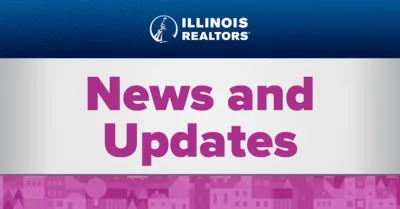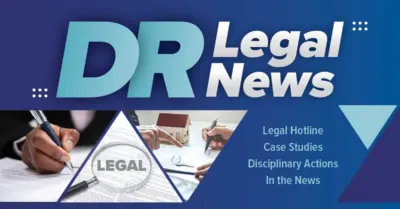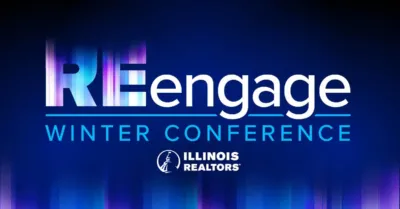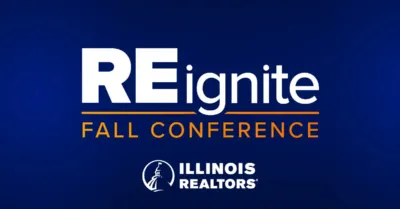FAQS for Cook County Just Housing Amendment
If you are a broker, property manager or owner of residential property in Cook County, you should be aware of recent amendments to the Cook County Human Rights Ordinance – known as the Just Housing Amendment (JHA). JHA created a new category for housing providers to consider when evaluating prospective buyers and tenant applicants for housing in Cook County. That category focuses on a housing seeker’s criminal history and what may and must not be considered during the evaluation process.
The category dealing with a person’s criminal history does not allow the housing provider to consider arrest records with no conviction, juvenile records or expunged criminal history to be used to deny or limit housing in Cook County. In addition, convictions will only be allowed to be considered on a limited basis. Pursuant to recently effective rules, no convictions that are older than three years can be considered to limit or deny housing to an applicant. This is true unless the conviction is one that requires the person to be registered as a sex offender or the person is subject to residency requirements as a child sex offender.
The JHA calls for a two-step analysis by the housing provider prior to rendering a decision whether to sell or rent. Most of the time, the facts will involve rental applications. The first step requires the housing provider to determine an applicant’s ability to pay (and requires the housing provider to give the applicant their tenant selection criteria in writing, along with contact information for the Cook County Human Rights Commission). The second step involves assessment of the applicant’s criminal history, if any.
Illinois REALTORS® produced the following FAQs that were reviewed and approved by Cook County officials.
Download, listen, or read below.
Cook County Just Housing Amendment (JHA):
Frequently Asked Questions (FAQs)
January 13, 2020
Q: When processing applications for rental housing, what are new and/or different requirements?
Housing providers cannot include a check box within initial housing application materials indicating whether a person has a criminal background.
Before accepting an application fee, a housing provider must disclose the following information:
A) Tenant selection criteria, which describes how an applicant will be evaluated.;
B) Applicant’s right to provide evidence demonstrating inaccuracies relevant to conviction history, evidence of rehabilitation, or other mitigating factors; AND
C) A copy of Commission’s procedural rules (expected in mid-January) or link to Commission’s website:
Once the application fee is accepted, housing providers must follow a two-step process. This two-step process is the new requirement for assessing applicants for housing, as described below.
Q: Must a housing provider move forward at all if the applicant is not financially qualified?
No. A housing provider may deny an application if the housing provider follows established criteria to determine the applicant’s ability to pay based on such factors as credit score, tenant history, utility bill payment history, etc.
Q: When screening a rental applicant for criminal history and for other criteria, what steps are now required under the County Ordinance?
It is now a two-step process. In the first step, financial information can be reviewed along with information about an applicant’s rental history and any other non-criminal criteria. Once that information is reviewed and the application will move forward, the housing provider may continue the application process.
Upon pre-qualification, the housing provider must notify the applicant that the first step of the screening procedure has been satisfied.
Once the applicant is pre-qualified and the notification of pre-qualification is complete, the housing provider can go to the second step and may inquire about criminal history.
Make sure that the credit bureau or agency that is used for these screenings, is using this bifurcated (two-step) process. Policies, written or unwritten, must follow the two-step review process regardless of how credit bureaus or agencies send screening materials. Ultimately, the two-step screening process is the responsibility of the housing provider.
Q: What is the definition of covered criminal history?
Per Section 42-38(a) of the Just Housing Amendment, covered criminal history means information regarding an individual’s arrest, charge or citation for an offense; participation in a diversion or deferral of judgment program; record of an offense that has been sealed, expunged or pardoned in accordance with applicable law; juvenile record; and conviction.
Q: When reviewing criminal history, what information can be considered and what is prohibited from consideration?
A housing provider may not consider information related to criminal history that is more than three (3) years old. The ordinance defines this to be three (3) years from the date of the conviction. The ordinance also has two exceptions to this: 1) a person subject to a current sex offender registration requirement; and 2) a person subject to a current child sex offender residency restriction. This means that a housing provider may deny housing to persons with these convictions in their covered criminal history.
Q: What are some examples of evidence of rehabilitation?
These can include such information as proof of the individual’s compliance with all the terms and conditions of the person’s sentence; court-issued certificates of good conduct; employer recommendations; educational accomplishments since the conviction; completion or active participation in rehabilitative treatments; recommendation letters from community organizations, counselors, case managers, teachers, community leaders, religious institutions or leaders, parole/probation officers who have observed the individual since their conviction.
Q: Does a housing provider need to provide the tenant selection criteria and a copy of the JHA Rules if the housing provider does not intend to do a criminal background check?
Yes, the tenant selection criteria must be provided to applicants whether or not there is a criminal background check.
Q: What if two applicants are “pre-qualified” at the same time, and in the second step (criminal background check), it is discovered that one applicant has a criminal background and the other does not. If this information came back to the housing provider on the same day, can the housing provider proceed with offering housing to the applicant who has no criminal background?
No. Denial of housing decisions cannot be based on an applicant’s criminal history prior to completing the two-step process and individualized assessment.
Q: If a housing provider is in Step Two of the process of evaluating an application and receives the application of another pre-qualified applicant, may the housing provider accept the new application?
Yes, per Rules Section 740.120 which states, “Nothing in these rules shall prevent a housing provider from approving another pre-qualified individual’s housing application during the pendency of the criminal conviction dispute process.
Q: What needs to be done if a conviction from the last three (3) years is discovered in the background check?
The ordinance requires that an “Individualized Assessment” must be done for anyone with a criminal background that may result in a denial of housing.
Only criminal convictions that have occurred within the last three (3) years can be considered. If an applicant has a conviction that is older than three (3) years, housing cannot be denied to that applicant if that individual is otherwise qualified.
However, if there is a conviction related to “register sex or child offender” a denial of housing is permissible.
If there is a criminal conviction unrelated to “register sex or child offender” (within the last three years) an Individualized Assessment must be conducted for that application if a denial of housing is being considered. The Assessment must consider all factors relevant to the conviction history and whether the history impacts the individual’s ability to fulfill the responsibilities of the tenancy.
Q: What are factors to consider in an Individualized Assessment?
Rules Section 720.130 states factors to consider include, but are not limited to:
- The nature and severity of the offense and how recently it occurred;
- The nature of the sentencing;
- The number of the applicant’s criminal convictions;
- The length of time that has passed since the applicant’s most recent conviction;
- The age of the individual at the time the criminal offense occurred;
- Evidence of rehabilitation;
- The individual history as a tenant before and/or after the conviction;
- Whether the criminal conviction(s) was related to or a product of the applicant’s disability; and
- If the applicant is a person with a disability, whether any reasonable accommodation could be provided to ameliorate any purported demonstrable risk.
Q: What are the tenant dispute procedures?
Within five (5) days of obtaining the background check, the housing provider must deliver a copy of the background check to the applicant by hand, certified mail, electronic communication (text, email).
Once received, the applicant, within five (5) business days, may produce any evidence or materials to dispute the accuracy of the information related to any criminal conviction within the last three (3) years.
Q: What is the time period to notify the applicant regarding acceptance or denial of the application?
The housing provider must approve or deny within three (3) business days of the receipt of information from the applicant disputing or rebutting information contained in the criminal background check.
Q: What information must a written denial include?
It must state that the decision to deny is necessary to protect against a demonstrable risk to persons or property of others and notice of the applicant’s right to file a complaint with the Human Rights Commission of Cook County.
Additional Links to Cook County Commission on Human Rights Resources
About the writer: Elizabeth A. (Betsy) Urbance, General Counsel and Vice President of Legal Services has served the association’s members as General Counsel since 2018 and prior to that she was Legal Hotline Attorney since 1994. Urbance is a 1984 graduate of Western Illinois University and received her law degree from the University of Missouri School of Law in 1987. She is licensed in both Illinois and Missouri.














